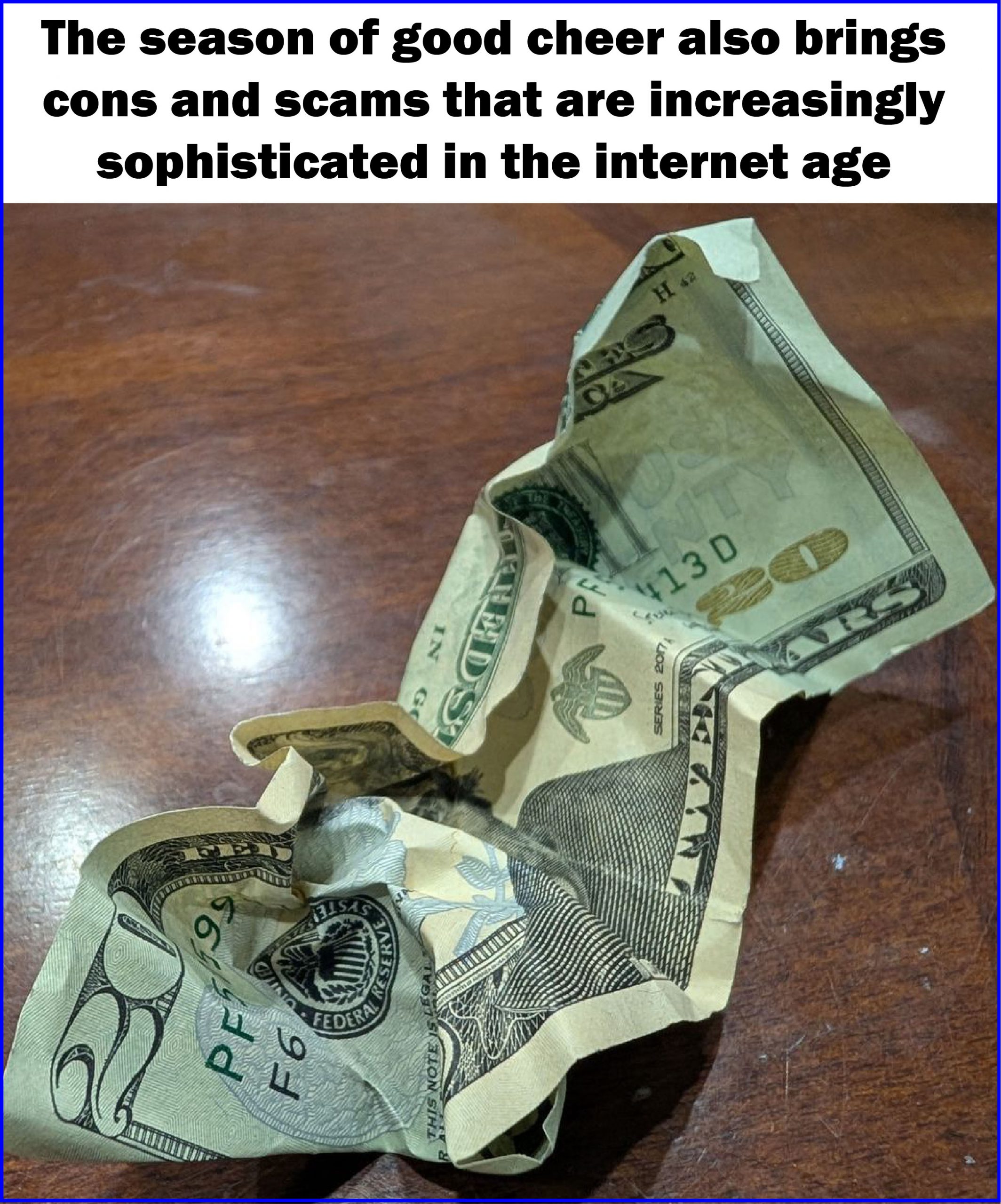(The Sheriff’s Office announced that they would be hosting an expert from the Colorado Bureau of Investigation on Tuesday, December 3 at 6 p.m. at the West Gym of the Custer County school about how to avoid scams and the increasing sophistication of many of the scam artists)
Unfortunately, the holiday season is accompanied by a flurry of online, mail, and telephone scams, some of them wickedly sophisticated. In our aging community, Custerites will want to be especially attentive to the predatory practices of those who would like to fleece our holiday budgets for themselves.
There is ample counsel available from multiple sources. One you may not have availed yourself of is the series of posters taped to the glass partition in the Bassick Place US Post Office. While standing in line to get those gift packages off in time, you might browse and absorb the alerts USPS thinks are significant for blunting fraud.
Though not as readily accessible as those public information sheets, another sound source is the Colorado Attorney General’s webpage dedicated to consumer protection. At stopfraudcolorado.gov, we find this precise observation on avoiding being enticed into fraudulent schemes that take not only your cash and disappear, but take your credit and banking information, and sometimes your identity, as well: “Trust your gut. If something feels off, it probably is.”
In relation to deceitful holiday scams locally, the Sheriff’s Office has noticed a trend in increasing fraud reports. Sheriff Smith will soon be posting holiday scam alert information on both the SO’s county government page and Facebook page. The Tribune suggests looking in on those postings.
Cons have become more refined in approaching the elderly than the old, “Grandpa, I’m in jail in Mexico…” ploy. AARP’s Fraud Watch recently published a piece in their Bulletin which, while helpful, is also chilling. The extent of fraud online, by mail and telephone in America is astounding. Trillions of dollars are annually scooped up from an unwitting populace, and peak over the winter holidays.
Fraud Watch suggests being especially aware of “look-alike” products that are counterfeits of what you think you are actually buying; the product may indeed arrive at your door, but it will not be what you expected. Hucksters are even using AI, says Michigan State University’s Saleem Alhabash, to modify original product information in order to legitimatize their fraudulent pitch. Alhabash, who lead a 2023 survey on fake product purchases, simply says, “You have to be critical of every product you buy online.”
That critical acumen can be turned to such filtering as not relying on price reductions, sales, and consumer ratings, all of which can be and are faked, not clicking on links in online solicitations, double-checking safety seals, and never buying with gift cards, peer-to-peer apps, or cryptocurrency—and always look for a security lock icon before purchasing with a credit card.
An especially devious scheme has created imposter websites that seem to be the real thing. The fake store, though, will take your very real money and disappear with no online trace. If in doubt, Alhabash recommends checking for customer service information. Is there one? Is there a place to click for returns? You can also do a search for an unfamiliar third-party seller online with the word “scam” or “complaint, or “review” to determine if there have been problems or issues with this party.
The Tribune recommends a particularly fool-proof method to avoid these scams and frauds over the holidays: Shop local! That person taking your cash or check or credit card is your friend and neighbor…and you’re boosting the local economy as well.
We wish us all a hearty and safe and joyous winter respite over these holidays ahead, a time for kindness and care.
– W.A. Ewing

